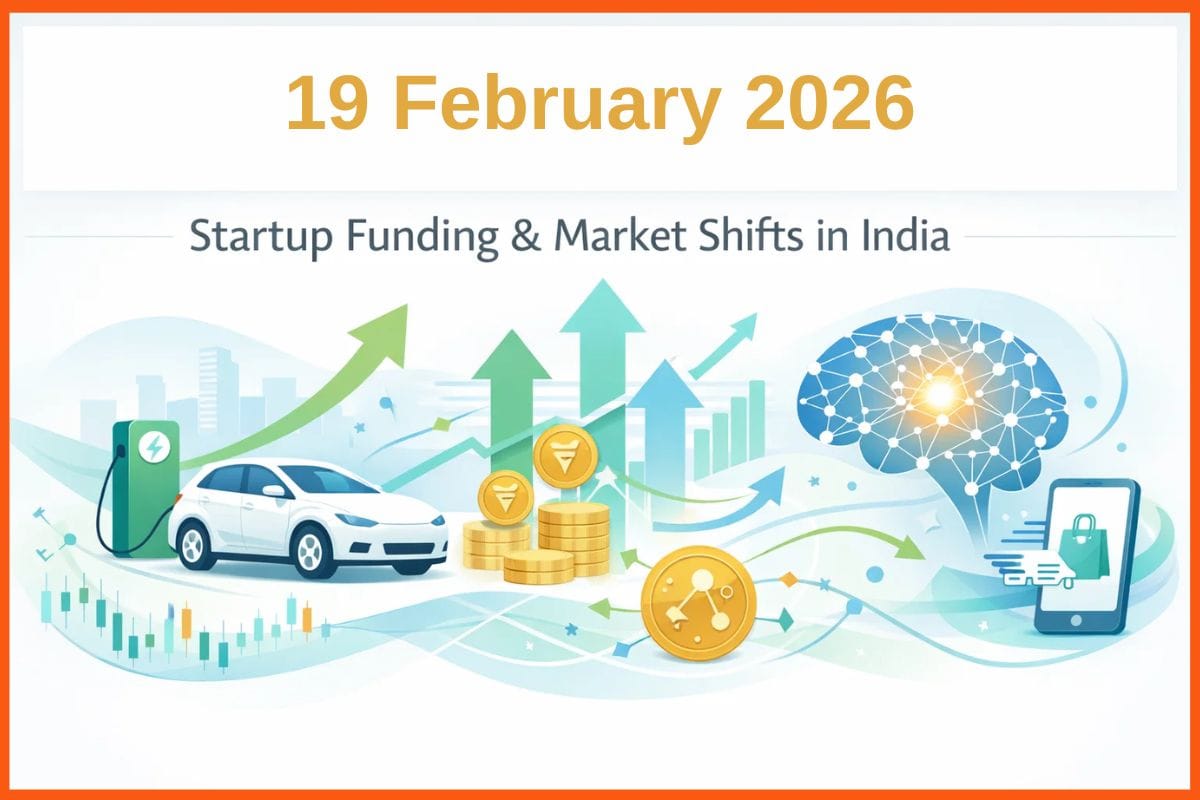Integrating AI in Marketing: A New Era of Personalization
📖 Learning
Not long ago, marketing personalization was limited to inserting someone's first name in an email subject line. But the emergence of artificial intelligence (AI) is transforming personalization, enabling marketers to deliver tailored recommendations, content, and experiences customized to each individual.
AI and its underlying technologies like machine learning and natural language processing have become invaluable to marketing. As you'll see in this article, AI marketing capabilities help businesses improve customer experiences, operate more efficiently, and gain a competitive edge.
While challenges exist, the customer behavior modeling benefits of AI marketing personalization cannot be overstated. Responsible development and oversight pave the way for realizing immense advantages.
AI Marketing Concepts and Capabilities
Benefits of AI-Driven Marketing Personalization
Competitive Edge
Use Cases Demonstrating AI Personalization Impact
Best Practices for Implementation
Orchestrating Personalized Journeys
Overcoming Key Challenges
The Future with AI Marketing
AI Marketing Concepts and Capabilities
Before looking at applications, it's helpful to set a level set on what AI is and what it enables for marketing teams.
Artificial intelligence (AI) refers to software systems that can simulate human intelligence for tasks like visual perception, speech recognition, and decision-making. Major categories of AI include machine learning and natural language processing (NLP).
Machine Learning
Statistical models and neural networks trained on huge datasets to analyze inputs and predict outcomes without needing traditional programming. Machine learning empowers predictive analytics and customer segmentation modeling. It also aids personalization engines, forecasting and more.
Natural Language Processing
Focused on automated understanding and generation of human languages. Marketers apply NLP for applications like chatbots, voice search optimization, analyzing consumer sentiment, automated content creation and building contextual recommendations.
Powered by data and advanced algorithms, AI delivers key capabilities highly valuable for marketing:
- Predictive analytics: Identifying trends and patterns in consumer behavior data to foresee outcomes
- Automation: Streamlining repetitive tasks to reduce human effort
- Personalization: Customizing content/recommendations for each individual based on preferences
Now it’s time to explore some of the ways AI personalization is transforming marketing.
Benefits of AI-Driven Marketing Personalization
Leveraging AI algorithms to personalize marketing delivers measurable improvements across the board, from strengthening customer experiences to boosting efficiency.
Hyper-personalized Customer Experiences
The greatest advantage of AI-powered personalization is the ability to provide tailored recommendations and content calibrated to each person's preferences and interests. While marketers previously created a few generic customer segments, AI enables true 1:1 personalization, or hyper-personalization.
Tailored Recommendations/Content
Machine learning algorithms ingest purchase history, browsing behavior, and multiple other data signals to understand individual customer inclinations. They then generate product recommendations, custom web page layouts, email content, and other personalized experiences aligned with each person.
This precision dramatically lifts engagement rates and conversions. One study found that 56% of customers expect personalized offers and recommendations. Hyper Personalized mobile push notifications deliver up to 800% higher conversion rates. Personalized subject lines alone drive 29% higher unique open rates.
In today's digital landscape, creating relevant personalized experiences is no longer just a "nice-to-have" -- it's virtually mandatory for winning and retaining customers. AI addresses this imperative.

Competitive Edge
AI grants companies data-driven insights competitors lack, providing an intelligence advantage to make smarter decisions.
Predictive Analytics
Sophisticated machine learning algorithms unlock future visibility by detecting subtle patterns in volumes of historical data. Predictive analytics applications in marketing include:
- Buyer propensity modeling: Scoring leads/accounts to focus sales efforts on those most likely to convert.
- Customer lifetime value (LTV) prediction: Estimating long-term spending for each customer to guide investments.
- Churn analysis: Pinpointing customers likely to cancel subscriptions/lapse and taking mitigating actions.
- Market forecasting: Anticipating trends in consumer demand for new products and inventory planning.
These AI-enabled use cases produce actionable predictions, directionally improving marketing efficiency and results. And with consumer behaviors continuously evolving, predictive analytics will only grow more vital.

Use Cases Demonstrating AI Personalization Impact
AI personalization dominates digital experiences, as the following examples illustrate:
Ecommerce Product Recommendations
Virtually every online retailer today displays purchase suggestions based on individual user histories, popular items, and trends.
For instance, when visiting Amazon, you'll notice product recommendations with messaging like "Inspired by your Shopping Trends" or "Frequently Bought Together". Powered by AI algorithms processing millions of customer interactions, these extremely targeted recommendations account for 35% of Amazon's revenue.
Similarly, Netflix relies heavily on AI to analyze viewers' content preferences and present custom-recommended shows/movies most likely to match their tastes. This personalization is a major factor in Netflix's content consumption stemming from algorithmic recommendations.
Personalized Playlists
Music and podcast streaming services thrive based on playlists tailored to users' listening habits. Spotify created a category called "Made for You" with algorithmically curated playlists updated daily, including Release Radar (new music based on artists you follow), Discover Weekly (new music based on your favorite tracks), and Daily Mixes.
This personalization drives nearly one-third of all listening time on Spotify. And the more people use Spotify, the better recommendations become.
Conversational Chatbots
Advances in natural language processing (NLP) allow AI chatbots to deliver personalized responses as though conversing with a human. They can answer common questions, recommend relevant products/services, and even place orders, streamlining shopping experiences.
For example, Sephora's chatbot helper gives beauty tips tailored to customers' skin types, color preferences, and purchase history. Over 70% of Sephora's online chat conversations are fully automated by their chatbot, leaving human agents more time for complex customer issues.
Best Practices for Implementation
AI personalization clearly provides tremendous advantages. But succeeding requires an intentional, phased approach addressing people, processes, and technology.
Assessing Business Needs and Goals
The first step is honestly evaluating existing capabilities and desired outcomes. Are you struggling to create hyper-personalized experiences at scale? Do routine responsibilities limit strategic marketing initiatives? Set tangible goals for how AI personalization will progress key performance indicators like customer lifetime value or content engagement. Maintain a clear line of sight linking AI solutions back to actual business objectives.
Educating and Training Staff
Humans drive AI adoption. Marketers must comprehend AI abilities at a foundational level and receive proper training before automating the processes they manage. Reservations often stem from misunderstandings (like AI stealing jobs vs. augmenting productivity). Thoughtfully introducing AI through workshops or online courses reassures staff and makes integration smoother. Ongoing training is also crucial as algorithms continuously improve.
Starting Small with Pilots
An incremental rollout focuses on initial use cases where AI personalization can make the biggest material impact. Testing changes with small audience samples enables gathering feedback and fine-tuning approaches. Build upon pilots' success, quantify ROI, and publicize wins across the organization. This logical sequenced strategy smooths the path to eventually permeating AI throughout marketing systems.
Monitoring Performance
The work doesn't end once AI personalization goes live. You must closely track performance, measure against key performance indicators, solicit customer input, watch for technical issues, and keep strategies current. Agile marketing teams continually evaluate results, understand what's moving the needle, and optimize accordingly.

Orchestrating Personalized Journeys
AI allows coordinating personalized cross-channel campaigns matched to customer needs. It maps the broader journey from initial interest to eventual conversion. Then, it informs messaging consistency and timing across each step.
Connected AI layers enable sequential nurturing based on demonstrated behaviors and predictive intelligence. This closes more sales by meeting prospects with relevance at the right moments.
But effective orchestration takes more than channel quantity or even predictive analytics. AI provides qualitative insights through sentiment analysis to decode unspoken needs. It reveals emotional connections missed by data alone.
This emotional awareness creates two-way relationships via predictive empathy. AI graduates from simple personalization to data-driven intimacy. The result is magical moments harmonized across channels. And customers who feel truly understood.
Overcoming Key Challenges
Adopting emerging technology like AI inevitably involves hurdles around change management, responsible development, transparency, and more.
Privacy and Security Concerns
Protecting customer data is imperative, especially when leveraging AI algorithms dependent on collecting and analyzing consumer information. Privacy cannot be an afterthought. Prioritize data security from the start, minimize unnecessary data intake, allow consumers transparency into how you manage data, and ensure compliance with regulations like DPDP and GDPR. Earning trust around ethical data practices must underpin AI adoption.
Avoiding Bias in Algorithms
Left unchecked, AI systems can reinforce societal biases and exclusions, whether from imperfect training data or simply mirroring systemic prejudices. Form diverse data science teams, continuously review algorithms for fairness, and proactively mitigate prejudicial outcomes. Responsible AI must align with organizational values of equity and inclusion.
Maintaining Human Oversight
Despite advanced AI, humans must remain accountable for technology-driven decisions. Enable human monitoring of automated processes, establish guardrails where needed, and give staff power to override incorrect AI recommendations. Marketing leaders must encourage transparency around AI while nurturing organizational AI literacy.
The Future with AI Marketing
Looking ahead, AI will inevitably continue advancing and permeating marketing technology. Momentum clearly shows more investment into ever-smarter algorithms and even greater personalization capabilities.
As consumers themselves leverage AI tools for shopping and research, they'll expect seamless brand experiences where each interaction feels tailor-made just for them.
Companies failing to continually integrate state-of-the-art AI put themselves at existential risk in the modern economy. Adopting AI provides the only path to keep pace with skyrocketing personalization standards and deliver the remarkable experiences customers demand.
The message is clear: AI is no longer just one component of marketing stacks. It must become the connective tissue unifying all systems to address individuals at a one-to-one level. Lean into this new era, where marketing finally realizes the full potential of AI to revolutionize personalization.
To Summarize
AI transforms marketing, delivering hyper-personalization at scale and actionable insights through data, all by automating rote tasks. So teams can focus on strategy and creativity.
The future is here. AI propels transparent and ethical marketing, building trust through responsible development and caring for customer wellbeing.
Adopting AI is now mandatory to keep up with ever-rising expectations. It provides a clear competitive edge to brands embracing new tech.
Get started with AI in steps. Prove value through measured pilots, then expand use cases over time. Put AI at your core and transform experiences, strengthen connections, and boost performance. The personalization era beckons and AI answers its call. Will you seize the advantage?

Must have tools for startups - Recommended by StartupTalky
- Convert Visitors into Leads- SeizeLead
- Website Builder SquareSpace
- Run your business Smoothly Systeme.io
- Stock Images Shutterstock





